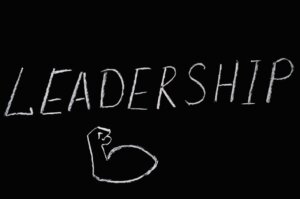In this posting, I build on the October 7 blog, in which Steve Wolinski introduced Diana Whitney’s, Kae Rader’s and my book, Appreciative Leadership: Focus on What Works to Drive Winning Performance and Build a Thriving Organization. Expanding upon Steve’s clear summary of our book’s content, I provide some history behind the approach and the design of the text, along with more detail about the five core strategies that together unleash positive power.
The Origin of Appreciative Leadership
Appreciative Leadership was born over a period of years, during which we worked as Appreciative Inquiry consultants and authors. We noticed how some of the initiatives we worked on resulted in “transformational” change (Bushe and Kassam, 2005); while others started strong but lost momentum or effectiveness over time. Patterns of leadership began to emerge among the successful initiatives – and we followed them. Through one-on-one interviews and focus groups, we identified five core strategies that are at the heart of Appreciative Leadership: qualities, strengths, and capacities that compel people to follow and foster winning performance. We collected many of the stories from which the strategies had been gleaned, and wrote a book “By Leaders, for Leaders,” whose purpose was to simultaneously heighten readers’ awareness, affirm their capacities, and enhance their capacities. The Wisdom of Inquiry: Leading with Positively Powerful Questions
The first of the five core strategies is Inquiry. By “asking” more than they “tell” and employing purposefully positive and value-based questions, appreciative leaders actively invite people to share their thoughts, feelings, stories of success, and ideas for the future. As committed practitioners of Appreciative Inquiry, we had already seen the power of positive questions. Over years of consulting, however, we discovered that leaders who practice The Wisdom of Inquiry help cultivate environments in which people feel both empowered to make decisions and take risks, and encouraged to learn, experiment and innovate. These capacities, in turn, enhance organizational performance.
The Art of Illumination: Bringing Out the Best of People and Situations
Second comes the strategy of Illumination. Individual and collective strengths are a deep well of potential just waiting to be tapped. By recognizing and shining a light on strengths, appreciative leaders transform raw potential into positive results. They do so by actively seeking to discover the unique skills, abilities strengths, and positive potential of every person and situation. They also keep their eyes and ears open to see and hear what works, when people are at their best. They tell stories of success, anticipating and fulfilling people’s need for recognition and celebration and disseminating best practices. Finally, they align strengths – providing opportunities for both individuals and organizations to do more of what they do well, and collaborate where appropriate with others whose strengths are complementary.
The Genius of Inclusion: Engaging with People to Co-Create the Future
By acknowledging and addressing people’s need for belonging and creativity, the third strategy – Inclusion – opens the door for commitment, alignment, and co-creation among today’s multicultural, multigenerational, and multitalented workforce. New realities are crafted in relationship and conversation; so the act of bringing diverse groups of people “to the table” for crucial decisions and planning is itself transformational. But Inclusion also speaks to how we bring people to the table. It calls us to engage people in a manner that fosters safety and encourages equal voice … that leads to deeper and more intimate connections and accommodates conversational differences, which enable people to contribute in ways that are both comfortable and empowering. The Courage of Inspiration: Awakening the Creative Spirit
The fourth strategy – Inspiration – breathes new life into possibilities, offers hope in the midst of crisis, and gives people a reason and way to go forward. Seeing, experiencing, and knowing the hardships of the world, appreciative leaders choose to live and work in ways that are energetically positive. They use elevated language and broadly share uplifting stories. Drawing from the wisdom of the many, they put forth visions of what is possible (i.e., hopeful visions), along with resources and paths for getting there. Together, their language, stories, visions, and paths forward give people the courage to shed habitual ways of living and working, and to move in new, innovative, and more life-affirming directions.
The Path of Integrity: Making Choices for the Good of the Whole
Integrity is perhaps the most important and least understood of the five strategies. It speaks to qualities of character such as honesty, transparency, authenticity, and moral or ethical conduct. But in the end, the strategy of Integrity is about wholeness. Appreciative leaders walk the path of integrity by employing holistic approaches to support the authentic expression of human potential and to foster the design of life-affirming products, services, and organizations. They also make conscious choices to serve the whole (i.e., whole person, whole organization, whole world), and encourage or empower others to do the same. By embracing Integrity, appreciative leaders let others know they are expected to give their best for the greater good, and that they can trust others to do the same.
Appreciative Leadership Practices
On October 11, Sharna Garner asked for “simple suggestions or techniques” for the average manager who is super-busy and looking to be Appreciative Leadership on a daily basis. In my next posting (October 26), I will specific practices that leaders can use to bring these strategies to life and unleash positive power – within themselves, and among the people they serve.
Amanda Trosten-Bloom, Principal, Corporation for Positive Change
303-279-2240 (v), 303-277-0659 (f), [email protected], www.positivechange.org
 Sections of this topic
Sections of this topic
















